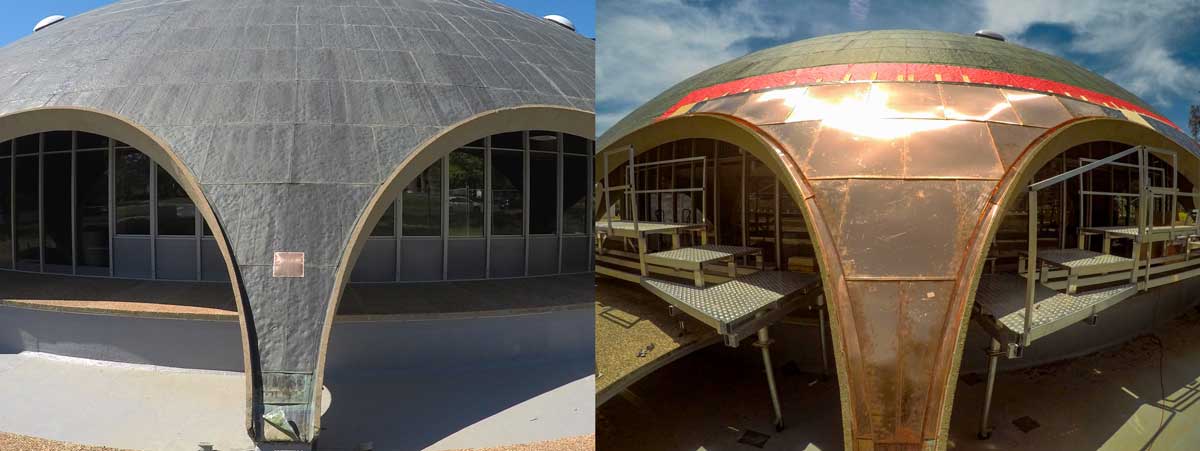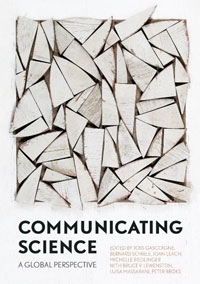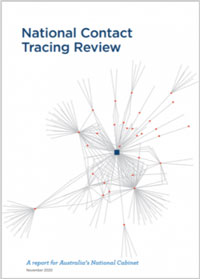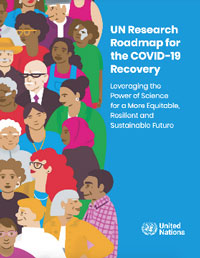
The Science Policy and Diplomacy Newsletter of the Australian Academy of Science highlights important science policy discussion and events in Australia and around the globe. We report on the involvement of science in national and international policy and diplomacy, and the Academy’s contributions to these discussions.
The home of Australian science, the Shine Dome, will sport a shiny new top and be far more energy-efficient as works begin to repair the damage from January's hailstorm which severely dented the dome’s copper roof tiles.
The Academy has also committed to reducing its impact on climate change by working towards a net-zero emissions future for the Shine Dome.
The University of Canberra is partnering with the Academy and others to develop a sustainability plan that will renew or replace environmental systems at the National Heritage Listed Canberra landmark.

Director, Australian National Centre for the Public Awareness of Science
Australian National University
Chair, National Committee for History and Philosophy of Science
Australian Academy of Science

Among the lessons of 2020, and there are many, is that science and technology communication and the policy settings that enable exchange, productive debate, and timely information flow are more critical than ever. Globally, how does quality science communication happen, and how has policy been formed as a force for good? A book just out and free to download, Communicating Science: A Global Perspective, tells the stories from 39 different countries and jurisdictions post-WWII. Three themes strongly emerge. First, community knowledge needs to be respected and provides the bedrock of trust that science and technology rely upon. Second, science and technology needs to be integrated with other beliefs—in policy as well as in the community. Finally, where publics around the world have seen researchers contribute to the development of society, science and technology have thrived.
This public face for science policy in encouraging science engagement is growing on the international front. New America, in collaboration with the Ford and Hewlett Foundations, is convening a partnership with leading universities in the US to build a new field of technological expertise dedicated to the public interest. It's launched as the Public Interest Technology University Network (PIT UN). Australia has a footprint in this network at the Australian National University (ANU) in the Australian National Centre for the Public Awareness of Science. The ANU Centre also is bringing these networks into the Science, Technology and Public Policy Graduate Series.
2020 has also encouraged researchers in their interests in science and technology policy as well as the recent history that has created our current context. The Australian Academy of Science gives access to researchers to this recent history and current issues through its National Committee for History and Philosophy of Science. Since 2016, the committee has curated sessions for researchers in science and technology to interact with publics and policymakers around key issues—bushfire, community engagement, and Indigenous science to give a few examples.
Finally, as 2020 becomes 2021, the ongoing work by the International Network for Government Science Advice (INGSA) to map how evidence is being marshalled in relation to the Covid-19 pandemic is worth examination. This project has been complemented by a National Science Foundation project looking at scientific evidence in policymaking globally. The lessons of 2020 will be important to retain as we move to 2021 and beyond. The necessity of strong science policy and science diplomacy communities has never been so important to ensure the critical work in this space remains at the foreground of scientific development.

Australia’s National Cabinet agreed unanimously on Friday 13 November to the recommendations of a COVID-19 testing and contact tracing report from a panel headed by Australia’s Chief Scientist Dr Alan Finkel. The report sets out the characteristics of an optimal system for testing, contact tracing and managing COVID-19 outbreaks, which states and territories can use to evaluate and refine their measures. The aim is to ensure Australia can reopen internal borders safely.

The United Nations has released the UN Research Roadmap for the COVID-19 Recovery. Designed to complement the UN framework for the immediate socio-economic response to COVID-19, this roadmap identifies 25 research priorities and key scientific strategies to support a recovery that benefits everyone. The roadmap reflects the commitment to make use of research to determine how COVID-19 socio-economic recovery efforts can be designed to stimulate equity, resilience, sustainability, and progress towards the Sustainable Development Goals (SDGs).
In September 2020, the Academy provided a submission to the consultation for the UN research roadmap for the COVID-19 recovery.
The submission highlighted the Academy’s role as a leading provider of independent scientific advice during COVID‑19 and the importance of researchers and their research output for recovery.
The world’s leading science academies, including the Australian Academy of Science, have expressed deep concern about global challenges in the context of the COVID-19 pandemic and have made recommendations to G20 leaders on how to find solutions. The S20 recently produced a statement outlining emerging critical challenges in health, the environment and technology, highlighted by the occurrence of the globally disruptive coronavirus pandemic.
The COVID-19 pandemic is imposing devastating health and social costs worldwide; at the same time, the climate emergency demands urgent and resolute action. Under the InterAcademy Partnership (IAP), 140 leading medical, scientific and engineering academies from around the world joined together to urge world leaders to focus on a green recovery when planning for economic activity after the pandemic. Their key message in their communiqué is that only a low-carbon recovery can generate co-benefits for social equity, the environment, and human health. The Academy supported the IAP communiqué on global green recovery after COVID-19.
Professor Rory Medcalf, Head of the National Security College at the ANU, has begun a conversation, citing the patterns of connectivity and especially of contestation, drawn over the Indo-Pacific over the first part of this century, that are likely to play a large part in defining the policy challenges and choices ahead for many nations. Can and will the pre-pandemic concept of the Indo-Pacific help nations prepare for the future? Read the question and responses.
The International Science Council published a story reflecting on the discussion between experts during the ‘Transformations within reach: Resilient food systems’ webinar. The article reflects the need to learn from COVID-19 and build more resilient food systems, recognising that the pandemic has amplified a humanitarian and socioeconomic crisis impacting the conditions for development, and is bringing existing systematic issues to the forefront. One such problem is the scarcity of global food supplies in certain areas and weaknesses in food systems.
The science of nutrition informs high-quality diets and sustainable agriculture and plays a crucial role in achieving the Sustainable Development Goals. The pathway for realising these impacts, in both Australia and the Asia-Pacific region, are described in the Academy’s 2019 Decadal Plan for the Science of Nutrition.
This OECD Science, Technology and Industry Policy Papers report, Building digital workforce capacity and skills for data-intensive science, examines the human resource requirements for data-intensive science, focusing primarily on research conducted in the public sector, and the related challenges and training needs. The report includes policy recommendations for various actors and good practice examples to support these recommendations.
The Australian Research Council (ARC) launched a new way to view and explore National Competitive Grants Program (NCGP) data. With an interactive trend visualisations tool, you can explore a variety of NCGP trends in topics such as success rates and areas of research. Visualisation of trends in research funding helps view the relative interest in research areas and reveals where funding is directed. A better understanding of research funding trends can help individuals and institutions identify opportunities and gaps to inform future proposals, planning and policy development.
In a commentary, Science Does Not Have a Passport, the President of All European Academies (ALLEA), the organisation representing more than 50 academies from over 40 EU and non-European Union countries, discusses the importance of international scientific collaboration, exemplifying the need to maintain the connection between European and British scientists following Brexit.
The Royal Society hosted a conversation between actor, comedian and author Stephen Fry and Nobel Prize-winning biologist and President of the Royal Society, Venki Ramakrishnan to explore establishing trust in science and how individuals can make rational and objective decisions. The conversation occurred in October and can be watched on video.
A Science Business article discusses how COVID-19 has elevated, but also exposed scientists. Politicians want clarity, but it’s crucial to explain what is known, unknown and unknowable, says Rolf-Dieter Heuer, chair of the European Union group of chief scientific advisers.
The European Union has published an independent report, Improving pandemic preparedness and management. The advice builds on lessons learned from the current and from previous pandemics, analysing their complexity, drawing on insights from research and scholarship, and taking European values and respect for fundamental rights as critical orientation.
On 6 October 2020, Treasurer Frydenberg handed down the 2020–21 Federal Budget. In a media release, the Academy welcomed the announcements, which include an additional $1 billion to support research activities in universities and the decision to support the STEM school education programs.
On 24 August 2020, the Academy made a supplementary submission to the 2020–21 Federal Budget.
Following the release of the interim report of the independent review of the EPBC Act, chaired by Professor Graeme Samuel AC, the Academy published its position statement calling for the establishment of a national ‘Biodiversity BOM’ to address Australia’s inadequate and pressing need for reform in the way its biodiversity is monitored. The Biodiversity BOM would be an independent agency, similar to the Bureau of Metrology, but focused on biodiversity, and it would work to independently observe, analyse, forecast and warn on the state and trend of Australia’s biodiversity.
The Academy made a submission to the independent review on 17 April 2020.
On 1 October, the Academy welcomed the Government’s announcement of a Modern Manufacturing Strategy. The Academy highlighted that manufacturing is a significant funder of R&D in Australia and noted that the Academy’s Federal Budget submission includes a number measures to take advantage of and complement the Government’s new manufacturing strategy. The Academy’s Secretary for Science Policy, Professor David Day, said that “a modern, growing, manufacturing sector working hand in hand with Australian science promises to be critical to our economic recovery from the recession”.
On 10 September 2020, the Academy made a submission to the Senate Standing Committee for Education and Employment on the inquiry into the Higher Education Support Amendment (Job-ready Graduates and Supporting Regional and Remote Students) Bill 2020. The submission highlighted the need to secure Australia’s scientific research capability by ensuring that the next generation of Australian researchers is adequately trained, with the expertise crucial to our national interest and access to the infrastructure needed to conduct research.
The Australian Early- and Mid-Career Researcher (EMCR) Forum also made a submission.
On 4 September, the Academy of Science together with the Australian Academy of Technology and Engineering made a submission to the Productivity Commission’s inquiry into the progress of reform in Australia’s water resources sector under the Water Act 2007 (Cth).
On 17 August, the EMCR Forum made a submission to the Department of Education, Skills and Employment consultation on the Job-ready Graduates Package.
On 14 August, the Academy made a submission to the National Archive of Australia Consultation on their exposure draft for next policy for Australian Government agencies. The submission was drafted with advice from the Academy's National Committees for Data in Science (NCDiS), Academy Fellow Professor Michael Barber, and Dr Danny Kingsley, Scholarly Communication Consultant.
On 7 August, the Academy made a submission to the House of Representatives Standing Committee on the Environment and Energy inquiry into the problem of feral and domestic cats in Australia.
On 20 June 2020, the Academy made a submission to the Department of Industry, Science, Energy and Resources’ discussion paper on Australia’s Technology Investment Roadmap. In its submission, the Academy emphasised that fundamental research, also known as ‘basic research’, must be adequately supported through public and private funding strategies. The support would enable the generation of ‘scientific capital’—a knowledge repository from which practical applications, such as technological advancements, can be drawn.
© 2025 Australian Academy of Science